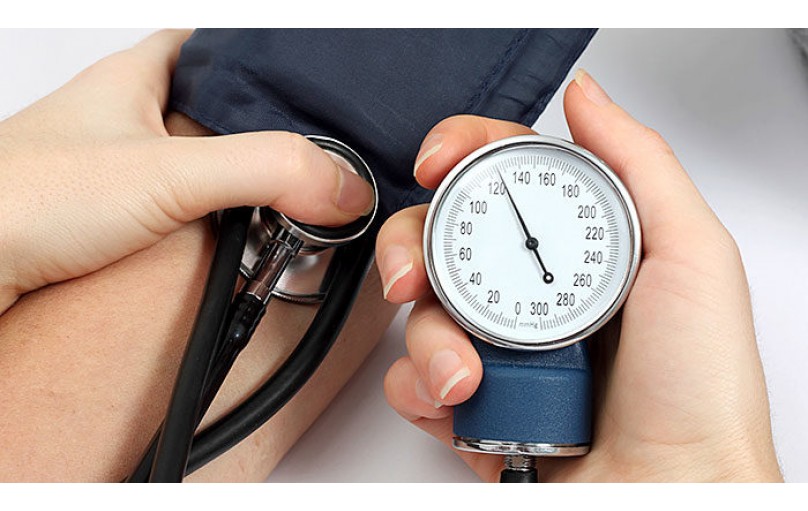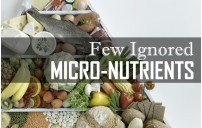Newsletter Subscribe
Blood Pressure

What is Blood Pressure?
Our heart is
responsible for pumping blood to the body. The pressure of the blood flowing in
the circulatory system is blood pressure. There are two types of disorders
related to blood pressure - high blood
pressure and low blood pressure.
As the name describes, when the
blood pressure reaches above from the normal limits, then it is considered as
high blood pressure. On the other hand, when it reaches below the safe number,
then it is treated as low blood pressure.
There are 2 ways to measure
blood pressure. The first is the systolic
pressure which describes the pressure of the heart when it pumps the blood
and the second is the diastolic pressure
which is the time that the heart takes while pumping.
For a healthy human being, the blood pressure is somewhere between 90/60 mmHg and 120/80 mmHG where 90 and 120 are systolic pressure and 60 and 80 are the diastolic pressure.
What are the Causes of Blood Pressure?
High
blood pressure is often associated with poor lifestyle
habits, and there is hardly anyone today who is not susceptible to poor
lifestyle choices. Blood pressure has three stages - stage 1, stage 2, and
hypertension stage. In stage 1, the blood pressure goes
somewhere around 130/80 to 139/89 mmHG. In stage 2, the blood pressure reaches
more than 140/90 mmHG. The last stage is hypertension where the
blood pressure goes higher than 180/120 mmHG.
Some of the causes of high
blood pressure are smoking, obesity, stress, genetic, lack of exercises, too
much salt consumption, thyroid, and kidney diseases. In addition, age and the
location where you live also affects the blood pressure levels. Studies have
also suggested that men are more likely to suffer from high blood pressure than
women.
Moving on to low
blood pressure, then the primary cause of this condition is heart
failure. Some of the other causes of this disease are abnormal heart beating,
widening of blood vessels, heat stroke, exhaustion, hormonal changes, and
pregnancy.
If the decrease in blood pressure is sudden, then it could be because of low body temperature, excessive alcohol consumption, irregular heartbeat, and bleeding. There is another condition known as postural hypotension where the person suffers from low blood pressure after suddenly standing up. There are multiple reasons behind this condition, and some of them are poor diet, dehydration, fatigue, aging, and allergies.
What the Body Needs to Face in Blood Pressure?
The body experiences certain
conditions symptomatic of blood pressure, such as:
#1 Facial Flushing
Facial flushing is when the
skin of your upper body including chest, neck, and face feels a warm and rapid
reddening sensation. Facial flushing is linked with anxiety, stress, and anger.
Also, it could also be because of some external factors like sun exposure, cold
weather, consumption of spices, and alcohol consumption. Always remember that
blood pressure never causes facial flushing directly, but it could be a sign of
that.
#2 Dizziness
Dizziness is another sign of
high blood pressure. In most of the cases, dizziness linked with high blood
pressure will be sudden, but it is not necessary. If it is left unattended,
then it could result in a stroke.
#3 Blood Spots in the Eyes
People suffering from high blood pressure often damage their eye nerves, which cause blood spots. Even though it is not necessary that it could be because of the blood pressure only, but it could be a sign of the same. Some other signs include blurred vision, nausea, fatigue, lack of concentration, and dizziness.
How Can Blood Pressure be Controlled with Lifestyle Changes?
#1 Weight Control
One of the biggest causes of
high blood pressure is obesity. Increase in weight directly relates to the rise
in the blood pressure. The best thing that you need to do is try to control the
weight as much as possible.
Overweight people tend to have
irregular sleep due to which they often suffer from sleep apnea which is
another reason that increases the blood pressure. All you have to do is shed
some additional pounds and adopt the habit of regular exercises.
#2 Eat Healthy
Consuming too much junk food
contributes to an increase in weight resulting in high blood pressure.
Moreover, eating salty food also acts as a fuel for high blood pressure. Make
sure to eat as much healthy food as possible so that you can control and avoid
blood pressure.
#3 Stop Smoking and Drinking
The biggest enemy of humans is
smoking and alcohol. Both of these habits could cause numerous organs to fail
and could even cause sudden death. These two habits are also associated with
high blood pressure. Quitting these habits is for your benefit.
#4 Avoid Hot Weather and Hot Water
Dizziness is a sign of blood
pressure and is caused by hot weather. It is best that you avoid being in the
hot weather. You should also avoid taking hot baths as it increases your body
temperature.
Inner nutrition plays a long lasting role in managing blood pressure levels.
Endnote:
India is the home to 200+
million high blood pressure patients. It is a grave condition which only a
proper diet, exercise and supplements can help to control.
Related Posts
Comments
Write Comment
💬 Need help? Chat with us







